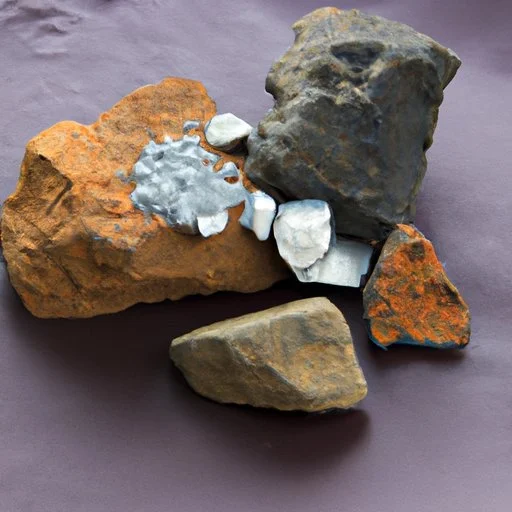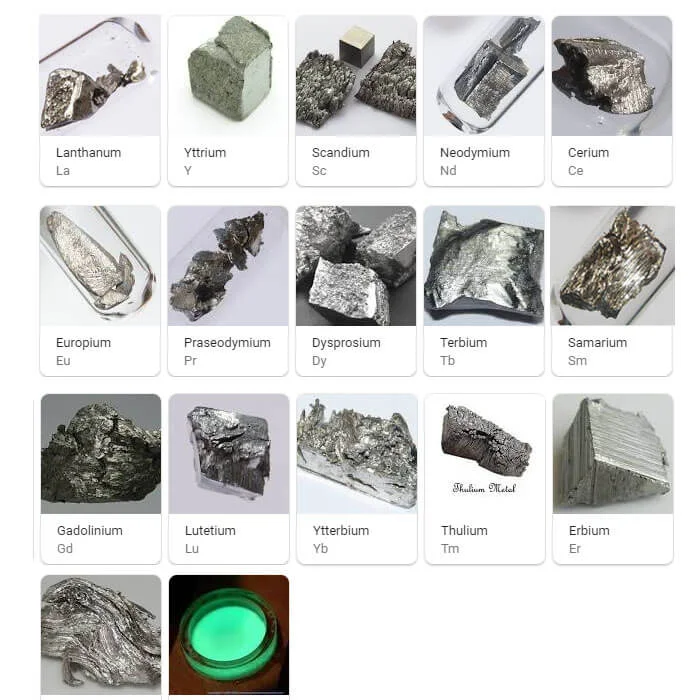Article Directory
The Dragon’s Chokehold: Why China's Rare-Earth Gambit Could Accidentally Unleash a Decade of Innovation
*
When I saw the news flash across my screen on Friday, my heart sank. Not for the stock market, though the sea of red was impossible to ignore—the S&P 500 tumbling nearly 2%, the Dow and Nasdaq in a nosedive. No, my gut clenched for the thousands of labs, startups, and engineering teams whose carefully laid roadmaps for the future just got thrown into absolute chaos. One moment, we were talking about the limitless potential of AI and the next-generation electric vehicles; the next, we were staring down the barrel of a geopolitical standoff that threatens the very building blocks of that future.
President Trump’s fiery post on Truth Social, threatening "a massive increase of Tariffs," was the loud, blustering reaction to a much quieter, far more chilling move from Beijing. China’s Ministry of Commerce had just tightened its grip on rare-earth elements, implementing new export controls that are as subtle as they are powerful.
Let’s be clear about what we’re talking about here. Rare-earth elements are the secret spice of modern technology—they’re not actually “rare” in the earth’s crust, but they are incredibly difficult and messy to mine and process into a usable form, which is the real bottleneck. They are the neodymium in the powerful, lightweight magnets that make electric car motors spin and wind turbines generate power. They are the yttrium and terbium that make our phone screens glow with vibrant color. They are in the guidance systems of missiles and the engines of F-35 fighter jets. China, through decades of strategic investment and a willingness to bear the environmental cost, now produces up to 95% of the world’s supply of these critical magnets.
This makes our entire global tech ecosystem something like a modern skyscraper built on a single, fragile pillar. And Beijing just signaled it’s ready and willing to shake that pillar to its foundations.
A White-Knuckle Moment on a Global Scale
The new rules are breathtaking in their scope. They require special approval for any company to export products containing even trace amounts of rare earths sourced from China. Think about that for a second. This isn’t just about raw materials anymore. This means a company in Germany or South Korea that uses Chinese-processed rare earths to build a component, which is then sold to an American company to put into a final product, could find its entire supply chain choked off.
It’s a strategic masterstroke, and a terrifying one. It’s like owning the only well in a desert and suddenly announcing you’ll be deciding who gets a cup of water and who doesn’t, based on rules you haven’t fully explained. The threat isn't just about stopping supply; it's about creating paralyzing uncertainty. How can you plan a billion-dollar factory or a decade-long R&D project when the microscopic ingredients you depend on could vanish overnight?

A Wedbush analyst called it a "white-knuckle moment for the markets," and he’s not wrong. But I think that framing misses the bigger picture. This is a white-knuckle moment for Western innovation, full stop. For decades, we’ve enjoyed the incredible benefits of a globalized supply chain, optimizing for cost and efficiency above all else. We outsourced the dirty, difficult work of processing these elements, allowing us to build our shimmering technological future faster and cheaper.
We became complacent. We became dependent. And now, the bill is coming due. The question we have to ask ourselves isn't just how we navigate this specific trade dispute. The real question is, what happens when the very physics of our progress is held hostage?
The Unintended Gift of a Crisis
It feels bleak. I get it. But this is the kind of breakthrough that reminds me why I got into this field in the first place. Because within every crisis of this magnitude, there is an opportunity for a paradigm shift.
I can’t help but think of the oil shocks of the 1970s. When OPEC turned off the spigot, it caused panic, long gas lines, and economic recession. It felt like the end of an era of cheap energy and limitless growth. But what happened next? That shock forced a generation of innovation. It gave us smaller, more fuel-efficient cars from Japan that remade the auto industry. It kickstarted massive government and private investment in solar, wind, and nuclear energy. The crisis was the catalyst we needed to start thinking differently.
This is our oil shock moment for materials science.
China’s move, while hostile, might just be the historic jolt we need to finally get serious about breaking this dependency. This is the pressure that could launch a renaissance in materials science and advanced manufacturing—spurring research into new magnet compositions that don't use rare earths, creating economic incentives for urban mining to recycle the millions of tons of electronics we throw away each year, and forcing us to build resilient, redundant, and domestic supply chains for the things that truly matter. The speed of this is just staggering—it means the gap between a theoretical new material in a lab and a critical component in our hands has to close faster than we can even comprehend, and that pressure is exactly what creates breakthroughs.
Imagine a future where our most advanced technologies are built not from materials dug out of a single corner of the world, but from recycled elements reclaimed in our own cities and from new, sustainable materials invented in our own labs. Is that future harder to build? Absolutely. But is it stronger, more resilient, and ultimately more innovative? Without a doubt.
The Pressure We Didn't Know We Needed
Let’s be honest. This is a hostile act from a strategic competitor, and it’s going to cause real economic pain. But buried inside this threat is a profound, if unintended, gift. For years, we’ve talked about the need for resilient supply chains and innovation in materials science, but the low cost of the status quo made it a low-priority problem to solve. Not anymore.
Beijing may think it’s putting the West in a checkmate. I believe they’ve just inadvertently fired the starting pistol on a new race—a race to invent our way out of dependency. A race to build a cleaner, smarter, and more self-reliant technological future. And that’s a race I believe we are more than ready to win. The dragon has tightened its grip, but in doing so, it may have just awakened a giant.




